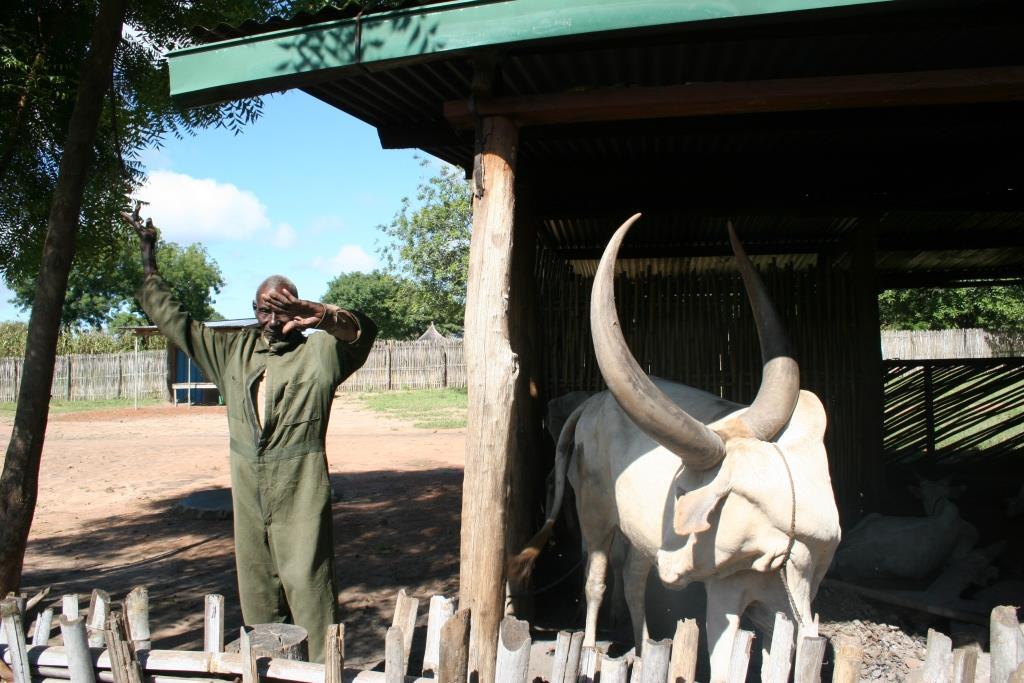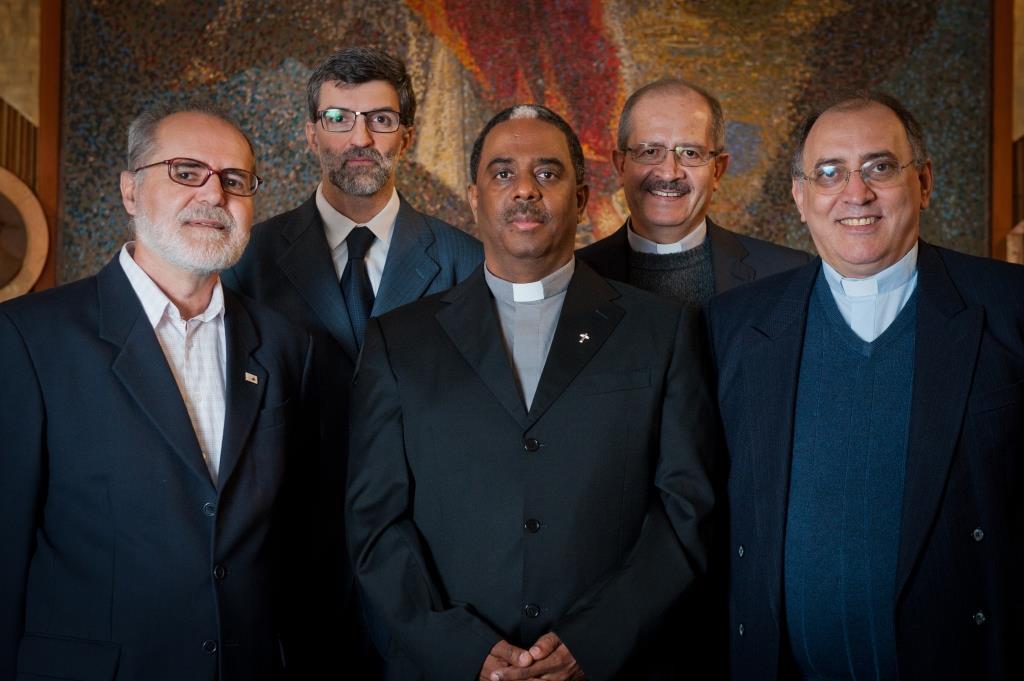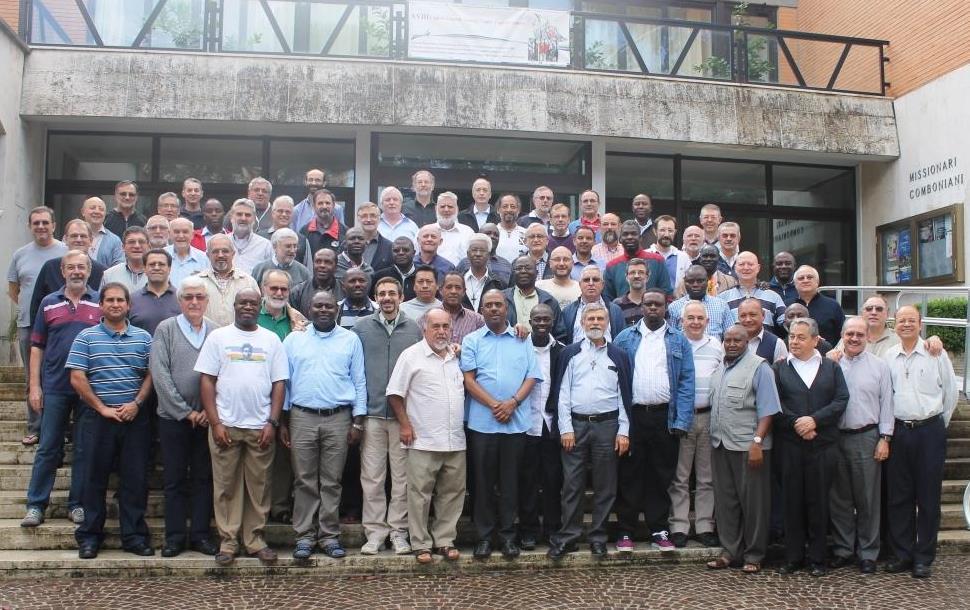Daniele Comboni
Missionari Comboniani
Area istituzionale
Altri link
Newsletter
Thursday 7 May 2015
A group of 14 Comboni missionaries who work among the pastoralists in South Sudan have written a Letter to the General Chapter 2015, by the title: “New paths of ministry among the pastoralists.” They are now collecting signatures of other confreres from the Comboni provinces which have pastoralists, in particular of those of Kenya, Uganda and Ethiopia. “In the wake of the celebrations for the 150th anniversary of the Plan of Comboni, this process of requalification of our mission to the pastoralists of Eastern Africa will bring the Plan into life in the mission of the XXI century”, say the missionaries.
Towards the General Chapter 2015
NEW PATHS OF MINISTRY
AMONG THE PASTORALISTS
“I am the good shepherd: I know my own, and my own know me.”
(Jn 10:11.14)
Daniel Comboni had a vision of Africa as the precious “dark pearl” that is still missing to the universal Church. He saw the richness in humanity and the love of God for the peoples of Africa as a gift that makes the Church whole. Today, we can be inspired by his vision and recognize in the pastoralist peoples in Africa one missing gem of the Church. Even today, in various countries (like Ethiopia, Kenya and Uganda) pastoralists continue to be sidelined. There is no interest in their contribution to the nation. They are not seen as significant contributors toward the construction of prosperous, more humane societies. Where instead they are the majority (South Sudan), the risk is that the violent element of their culture may prevail on the more constructive aspects.
The apostolate to the pastoralists is ever more a challenge for the Church. Fewer pastoral agents are sent to them; pastoralists live in a condition of marginalization that is reflected in the pressure to join the wider community of believers changing language, liturgy, and rhythm of life. As a matter of fact, the evangelization of pastoralist peoples is often associated with their becoming sedentary, changing lifestyle, being assimilated to other peoples and capitalist societies.
The dominant economic model, population growth and climate change have a severe impact on their lifestyle and prospects for the future. They risk remaining at the fringe of their own societies. Yet, pastoralists have a lot to contribute to humanity. They have a sense of living constantly in the presence of God, resilience and capacity to survive with just what is essential and a sense that one should desire only what is really needed. All that has a huge prophetic meaning in today’s consumerist, liberal capitalist society.
Today, their societies are becoming even more complex than in the past. They live in the brink of radical changes. The discovery of oil and other mineral resources in their territories is heralding a stronger process of assimilation. Globalization is changing communication patterns and social structures. Pastoralists need to renegotiate their identities, construct new meanings in their lives and shape their destiny in new ways to remain grounded in their heritage in the context of a changing reality.
This is a kairos (Evangelii gaudium 73-74), a favourable time for developing the ministry to pastoralist peoples in Eastern Africa. These peoples are more receptive to the Gospel today than they ever were. It is also the time for them to emerge and propose their cultural values to their neighbours. African societies need the prophetic value of pastoralists’ outlook on life to grow into more humane and sustainable social systems.
The Church has a duty to help ferry the pastoralists from their past into their future. It can do that by accompanying these peoples in their journey of reshaping their worldview, reformulate their cultures and rebuilding their social structures.
This challenge requires a renewed missionary approach, able to deal with complex situations and new ways of organizing missionary presence and work. The use of the methodology of the pastoral cycle is very useful to that end. Through its constituent components (insertion, sociocultural analysis, theological reflection and action process) it can better facilitate processes of inculturation of faith. A process in which Jesus becomes the centre of the life and choices of people, so that the best of their cultural heritage and worldview enter into a life-giving relationship with him: “I know my own, and my own know me” (Jn 10:14).
Fr. Mario Fugazza,
missionario comboniano,
in Uganda.
As it emerged in the inter-provincial workshop held in Juba in 2014, there are 5 principles for inculturation among pastoralists, namely: authentic encounter, proclamation, celebrating life, faith based human advancement and empowerment. We believe that such a focus is crucial for the regeneration of pastoralists, in line with Daniel Comboni's vision and mission.
We Comboni Missionaries have a long standing tradition of work among pastoralists. Even today, we are the missionary institute more involved in this ministry in Eastern Africa. We have reaffirmed this commitment as a priority in the Chapter of 2009 (CA 2009, 62.1). We ask the Chapter to endorse a requalification – a need seen as urgent since the Chapter of 2003 (CA 2003, 43) – of this ministry across interested provinces, which includes:
1. The formal adoption of the methodology of the Pastoral Cycle as the common approach to this ministry across provinces.
2. The focus on inculturation, facilitated through the use of the Pastoral Cycle.
3. The specific preparation of personnel for this ministry (both at the level of ongoing and basic formation).
4. The creation of specific pastoral teams for this ministry. These need to have complementary competences and networks that span even across borders and in communion with the local Church. Such networks and collaborative ministry would include the possibility of exchanging experiences and competences, common reflection, shared on-going formation and centres for scientific and theological reflection, research and dissemination. These pastoral teams will put together a variety of competences and capabilities including conflict transformation and reconciliation based on living peace traditions of pastoralist peoples. In fact, justice, peace and intergrity of creation ministry is a fundamental component in the process of inculturation of faith.
5. Long term planning that assure more continuity of service, starting with the rotation of missionary personnel.
6. Research and advocacy for a specific pastoral approach which may include more contextualised catechesis, liturgy and celebrations, new forms of community organization and diakonia, and deeper engagement with language and culture.
In the wake of the celebrations for the 150th anniversary of the Plan of Comboni, this process of requalification of our mission to the pastoralists of Eastern Africa will bring the Plan into life in the mission of the XXI century.
Proponents:
- Bro. Alberto Parise
- Fr. Christian Carlassare
- Fr. Daniele Moschetti
- Fr. Filipe Resende
- Fr. Giuseppe Caramazza
- Fr. Gregor Schimd
- Fr. Hubert Grabmann
- Fr. Julio Oca?a
- Fr. Mariano Tibaldo
- Fr. Markus Koerber
- Fr. Pedro Tacuri
- Fr. Raimundo Nonato Rocha dos Santos
- Fr. Teddy Njaya
- Fr. Yacob Solomon Sole






